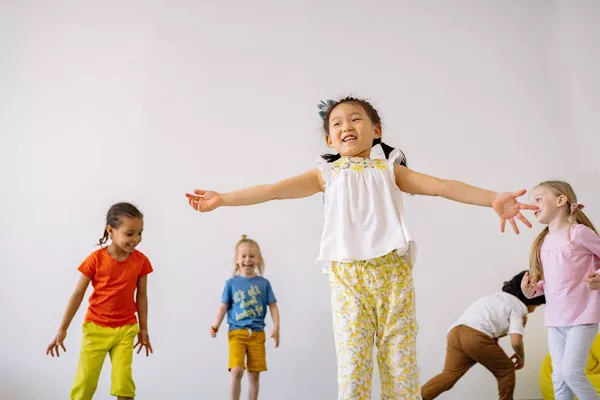Confidence is a powerful and transformative quality that can significantly impact every aspect of our lives. It influences the way we present ourselves, the decisions we make, and the opportunities we pursue. But what exactly makes you feel confident? Confidence is not a one-size-fits-all concept; it varies from person to person and can be influenced by a wide range of factors.
The Inner Confidence
Confidence often begins from within. It is rooted in your self-perception, your belief in your abilities, and your overall self-esteem. Let’s delve into the inner factors that contribute to feeling confident.
Positive Self-Talk: One of the cornerstones of inner confidence is positive self-talk. This involves challenging negative thoughts and replacing them with constructive and affirming ones. By recognizing and countering your inner critic, you can boost your self-esteem and feel more confident in your abilities.
Self-Acceptance: Embracing your strengths and weaknesses is essential for building confidence. Accepting yourself, flaws and all, can help you develop a more authentic and unwavering self-assurance.
Setting Achievable Goals: Setting and achieving small goals can provide a steady stream of confidence-boosting victories. Each accomplishment reinforces your belief in your ability to succeed.
Competence and Skill Development: Gaining expertise in areas that matter to you can significantly enhance your confidence. Continuous learning and skill development lead to a sense of mastery and self-assurance.
Healthy Lifestyle: Physical health and mental well-being are closely linked to confidence. Regular exercise, proper nutrition, and adequate sleep can all contribute to a positive self-image and heightened confidence.
The Influence of External Factors
While inner confidence is foundational, external factors can play a significant role in how confident you feel in various situations. These external influences can either bolster or undermine your confidence.
Supportive Relationships: Positive, supportive relationships can bolster your confidence. Surrounding yourself with people who believe in you and encourage your growth can provide a strong foundation for self-assurance.
Constructive Feedback: Constructive feedback, delivered with empathy and respect, can help you improve and grow, ultimately boosting your confidence in your abilities.
Appearance and Style: Personal grooming and clothing choices can affect your confidence. Feeling comfortable and well-dressed can boost your self-assurance.
Success and Achievements: Past successes and achievements can serve as a powerful source of confidence. Remembering your accomplishments can remind you of your capabilities in challenging times.
Mental Preparedness: Adequate preparation and practice are essential for feeling confident in high-pressure situations. The more you prepare, the more secure and competent you’ll feel.
The Role of Mindset
Your mindset has a profound impact on your confidence levels. Cultivating a growth mindset can help you approach challenges and setbacks with resilience and confidence.
Embracing Failure: Rather than fearing failure, see it as an opportunity to learn and grow. Embracing failure as a natural part of the learning process can boost your confidence to take risks and pursue new endeavors.
Optimism and Resilience: An optimistic outlook and resilience in the face of adversity can bolster your confidence. Believing in your ability to bounce back from setbacks fosters a sense of inner strength.
Visualization: Visualization techniques can help you mentally rehearse success, making it easier to approach situations with confidence.
Self-Belief: Trust in your abilities is a crucial component of confidence. Remind yourself of your past achievements and capabilities to reinforce your self-belief.
Taking Action: Confidence often comes from taking action despite fear or doubt. The more you step out of your comfort zone and confront challenges, the more confident you become in your ability to handle them.
Cultural and Societal Factors
Society and culture also play a role in shaping our confidence levels. These external influences can be both supportive and challenging.
Cultural Background: Cultural norms and expectations can influence how confident individuals feel. Some cultures may place a strong emphasis on humility, while others may encourage assertiveness and self-assuredness.
Gender Roles: Gender roles and stereotypes can impact how individuals express and perceive confidence. Recognizing and challenging these stereotypes is essential for promoting equal confidence opportunities.
Educational and Career Environments: The environments in which you learn and work can affect your confidence. Supportive educational and workplace settings can foster confidence, while hostile or discriminatory environments can erode it.
Media and Advertising: Media representations of beauty and success can influence self-esteem and confidence. Being aware of media’s unrealistic portrayals and striving for realistic self-image is vital.
Social Comparison: Constantly comparing oneself to others can undermine confidence. Focusing on your individual progress and growth rather than external comparisons is key to maintaining self-assurance.
Nurturing and Maintaining Confidence
Building and maintaining confidence is an ongoing process. Here are some strategies to nurture and sustain your self-assurance:
Practice Self-Compassion: Be kind and compassionate to yourself, especially in moments of self-doubt or failure.
Seek Professional Help: If low self-esteem or confidence issues persist, consider seeking the guidance of a therapist or counselor.
Surround Yourself with Positivity: Choose to spend time with people who uplift and encourage you, and minimize interactions with those who undermine your confidence.
Journaling: Keeping a journal can help you track your achievements, identify areas for growth, and reflect on your journey toward greater confidence.
Celebrate Small Wins: Acknowledge and celebrate even the smallest achievements and progress towards your goals.
Continual Learning: Stay curious and keep learning. New skills and knowledge can bolster your confidence in various areas of your life.
Mindfulness and Meditation: Practicing mindfulness and meditation can help you stay grounded and present, reducing anxiety and boosting self-assurance.
Conclusion
Confidence is a dynamic and multifaceted quality that can be influenced by both internal and external factors. It is not a fixed trait but rather a skill that can be cultivated and nurtured throughout life. Understanding what makes you feel confident is a journey of self-discovery, self-acceptance, and personal growth. By embracing positive self-talk, cultivating a growth mindset, and surrounding yourself with supportive relationships, you can build a robust foundation of self-assurance that empowers you to tackle challenges and pursue your goals with unwavering confidence. Remember, confidence is not about being perfect; it’s about believing in your ability to learn, adapt, and thrive in the face of uncertainty and change.
Related topics:


























